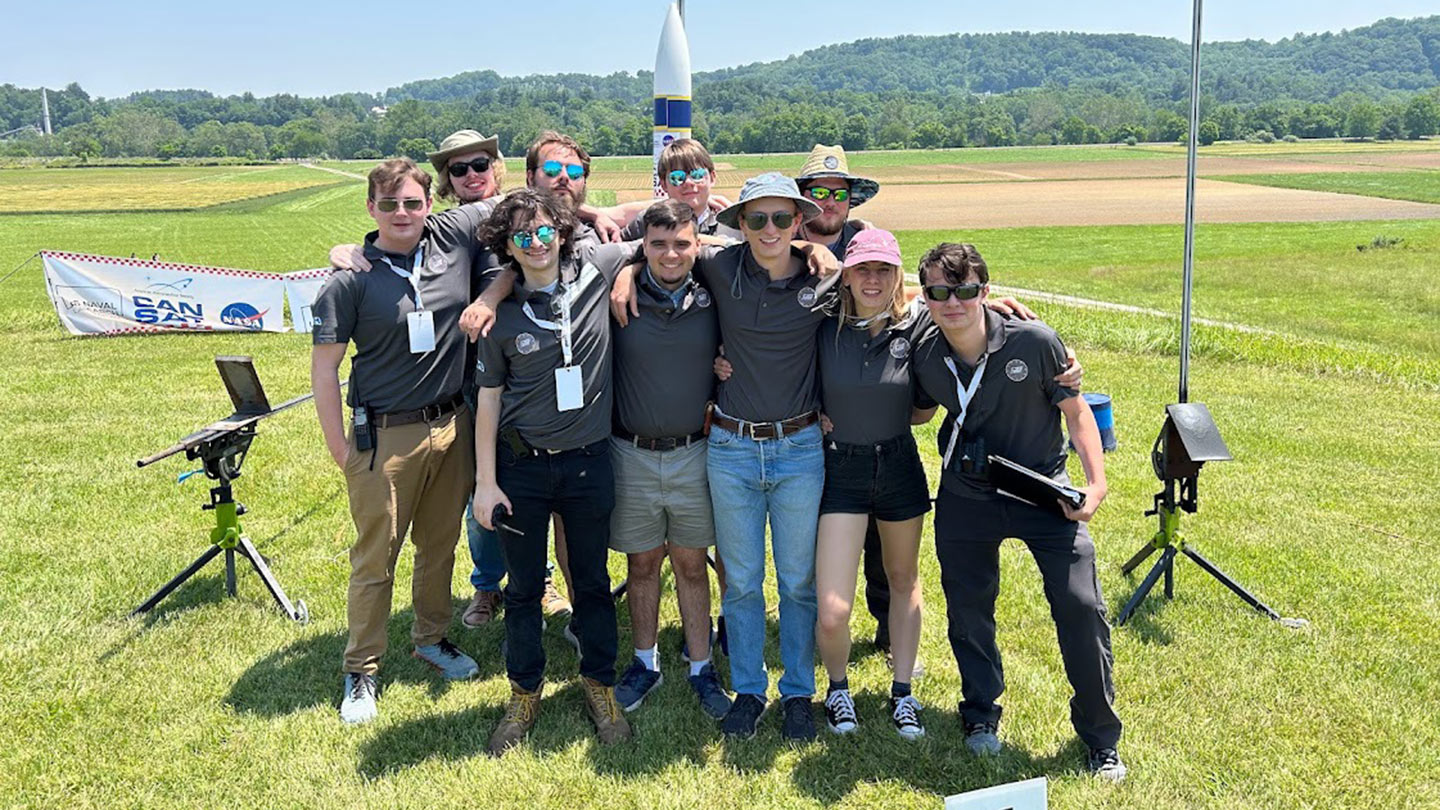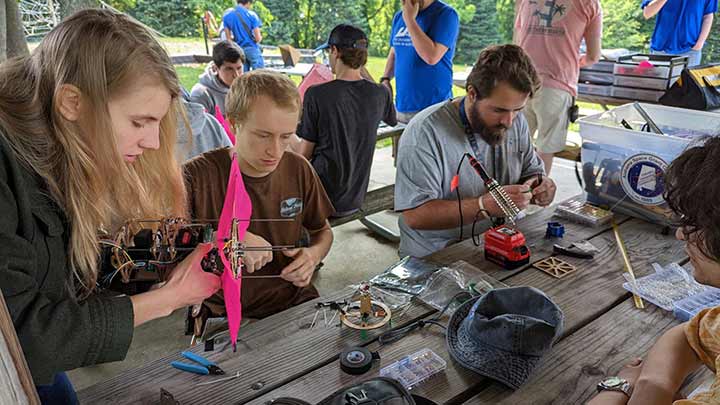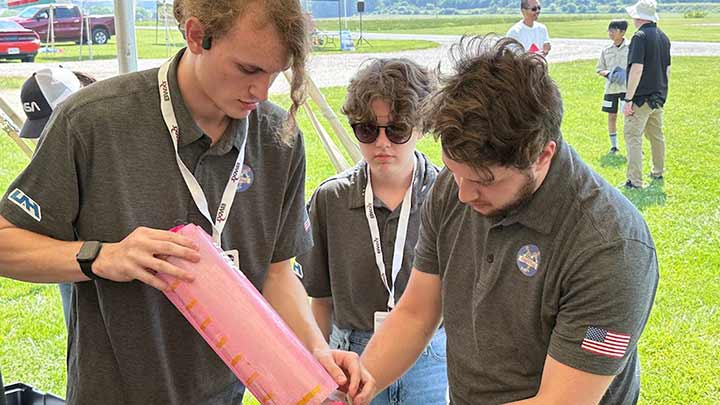
The Space Hardware Club (SHC) at The University of Alabama in Huntsville (UAH), a part of the University of Alabama System, turned in strong finishes in two international aerospace competitions, the International CanSat Competition and the University Rover Challenge.
This year, SHC CanSat teams placed first, fifth and sixth internationally against 40 university teams, as well as picking up first, second and third place finishes nationally.

Courtesy Niko Duffy
“With teams largely composed of freshmen and sophomores, this is an even greater honor, as many of the other teams are typically filled with seniors and graduate students,” says Sam Quartuccio, a computer engineering student and AutoSat Program Manager for the club.
CanSat is a project centered around participation in the annual CanSat Competition organized by the American Astronautical Society. A CanSat is a type of sounding rocket payload used to teach space technology that is similar to the technology used in miniaturized satellites. The annual event has teams design, build and fly rocket payloads that meet design criteria that change from year to year. The competition serves to give participants experience in the actual design process and various mechanical, electrical and software design systems that go into an engineering system.
Held annually in the desert of southern Utah, the University Rover Challenge (URC) requires student teams to design and build the next generation of Mars rovers that will one day work alongside astronauts exploring the Red Planet.
The UAH rover team ASTRA placed 18th internationally and eighth nationally in the 2023 competition, which was held at the Mars Desert Research Station in Hanksville, Utah. The team competed against 38 university teams selected from a pool of 104 applying institutions.
The URC was first launched in 2006, with competitions being held every summer since 2007. The event draws an international field of the most talented and promising students from across the globe.

Courtesy Samantha Quartuccio
“This was accomplished despite the team’s equipment being broken into and having parts of their rover stolen while traveling to competition,” Quartuccio notes. “As our second year in the competition, and after experiencing such hardship, everyone is very pleased with the competition performance. We are very proud of our team’s work this year. The number of hours the competitors have put in over the year has clearly paid off.”
The American Astronautical Society (AAS) organizes an annual student design-build-launch competition for space-related topics. Since 1954, AAS has been a support network for current and future space professionals, hosting national symposia and technical conferences, as well as providing publications designed to shape the United States space program.
Contact
Kristina Hendrix
256-824-6341
kristina.hendrix@uah.edu
Elizabeth Gibisch
256-824-6926
elizabeth.gibisch@uah.edu
